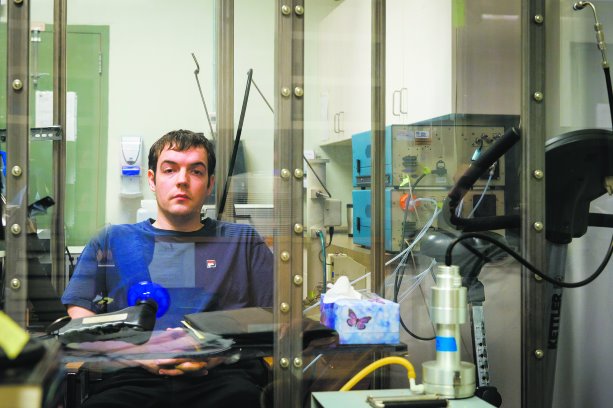Two hours of exposure to diesel exhaust fumes is enough to affect one’s genes, a new study from the University of British Columbia (UBC) shows.
Researchers found that two hours of exposure can lead to fundamental health-related changes in biology by switching some genes on, while switching others off.
"Usually when we look at the effects of air pollution, we measure things that are clinically obvious – air flow, blood pressure, heart rhythm," said senior author Dr. Chris Carlsten, an associate professor in the Division of Respiratory Medicine.
"But asthma, higher blood pressure or arrhythmia might just be the gradual accumulation of epigenetic changes. So we’ve revealed a window into how these long-term problems arise. We’re looking at changes ‘deep under the hood.’"
Their results were published in Particle and Fibre Toxicology.
The study involved putting volunteers in a polycarbonate-enclosed booth — about the size of a standard bathroom — while breathing in diluted and aged exhaust fumes that are about equal to the air quality along a Beijing highway, or under certain conditions at busy ports, rail yards, mines and industrial sites.
The researchers observed how fumes interacted with the chemical "coating" that attaches to parts of human DNA.
According to the study, that carbon-hydrogen coating, called methylation, can silence or dampen a gene, preventing it from producing a protein.
These changes can sometimes be harmful.
Methylation is one of several mechanisms for controlling gene expression, which is the focus of a growing field of study called epigenetics.
The study found that even short-term exposure to diesel exhaust caused changes in methylation at about 2,800 different points on people’s DNA, affecting about 400 genes.
How these changes in gene expression can impact a person’s health is what researchers intend to explore next.
According to the researchers, the study shows how vulnerable our genetic machinery can be to air pollution and that changes are taking place, even if there are no obvious symptoms.
The fact that DNA methylation was affected after only two hours of exposure has positive implications, said Carlsten, the AstraZeneca chair in Occupational and Environmental Lung Disease at UBC.
"Any time you can show something happens that quickly, it means you can probably reverse it – either through a therapy, a change in environment or even diet," he said.
Safety officials in the construction industry, where heavy diesel vehicles often operate, noted that the information could be useful for workers.
According to Mike McKenna, executive director of the B.C. Construction Safety Alliance, no steps have been taken to address diesel exhaust exposure as more research is needed.
However, he explained that if UBC researchers or other studies could determine a "safe exposure time" for diesel exhaust fumes, then industry could implement a best practice that rotates staff in and out of positions within proximity to vehicle or machines.
He added that exhaust filters could also be purchased and used by companies regularly using vehicles and machines producing diesel exhaust as a preventative measure.
"If it relates to worker health, it is an issue, however, further study would be needed to determine injuries/illness related to this," McKenna said.
Jeff Lyth, CEO of safety consulting company QSP, said that the study results were not particularly actionable and added that at this point it is more of a societal or governmental concern.
"Most of our diesel work in industry is outdoors, so it’s likely more dangerous to stand on the Willingdon overpass for an hour that it is to be on a construction site for the same period," he said.
Lyth explained that even when engines are used in enclosed spaces, the main concern is lethal carbon monoxide poisoning. Ventilation, monitors and scrubbers are used to prevent this.
"Hindsight will be 20/20 on diesel for sure, but it takes an international governmental effort to enact change with these widespread, chronic, low-level hazards," Lyth said.

A University of British Columbia student is exposed to diesel exhaust fumes as part of a study to determine how the body is affected. Researchers found that even two hours of exposure is enough to impact one’s genes.
Photo: University of British Columbia"










Recent Comments
comments for this post are closed